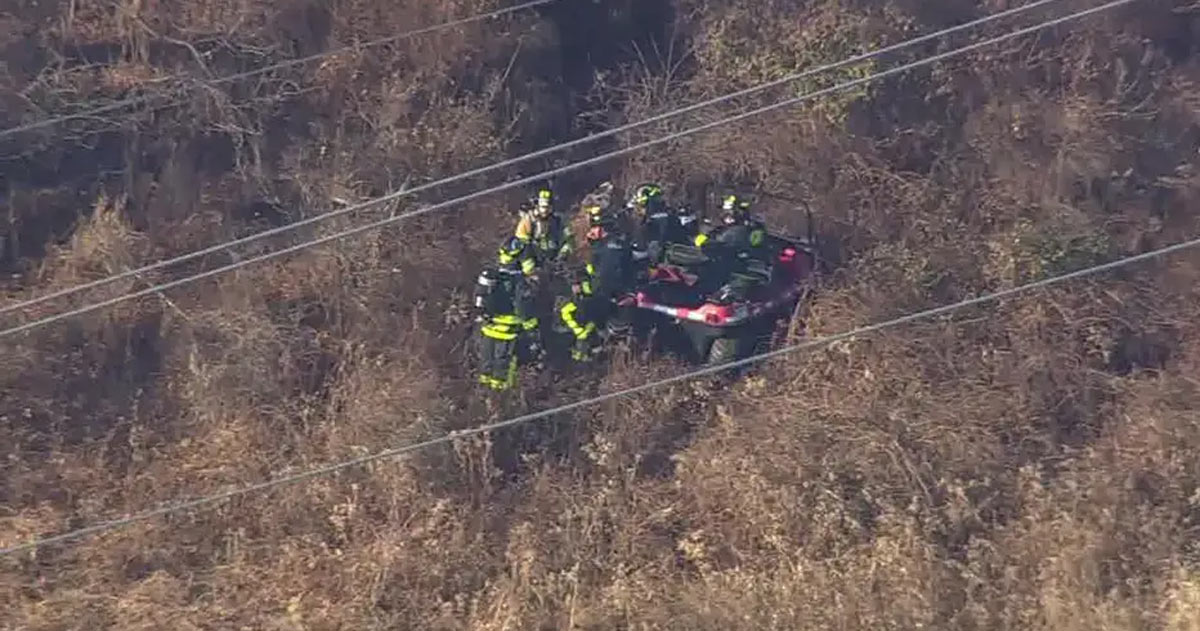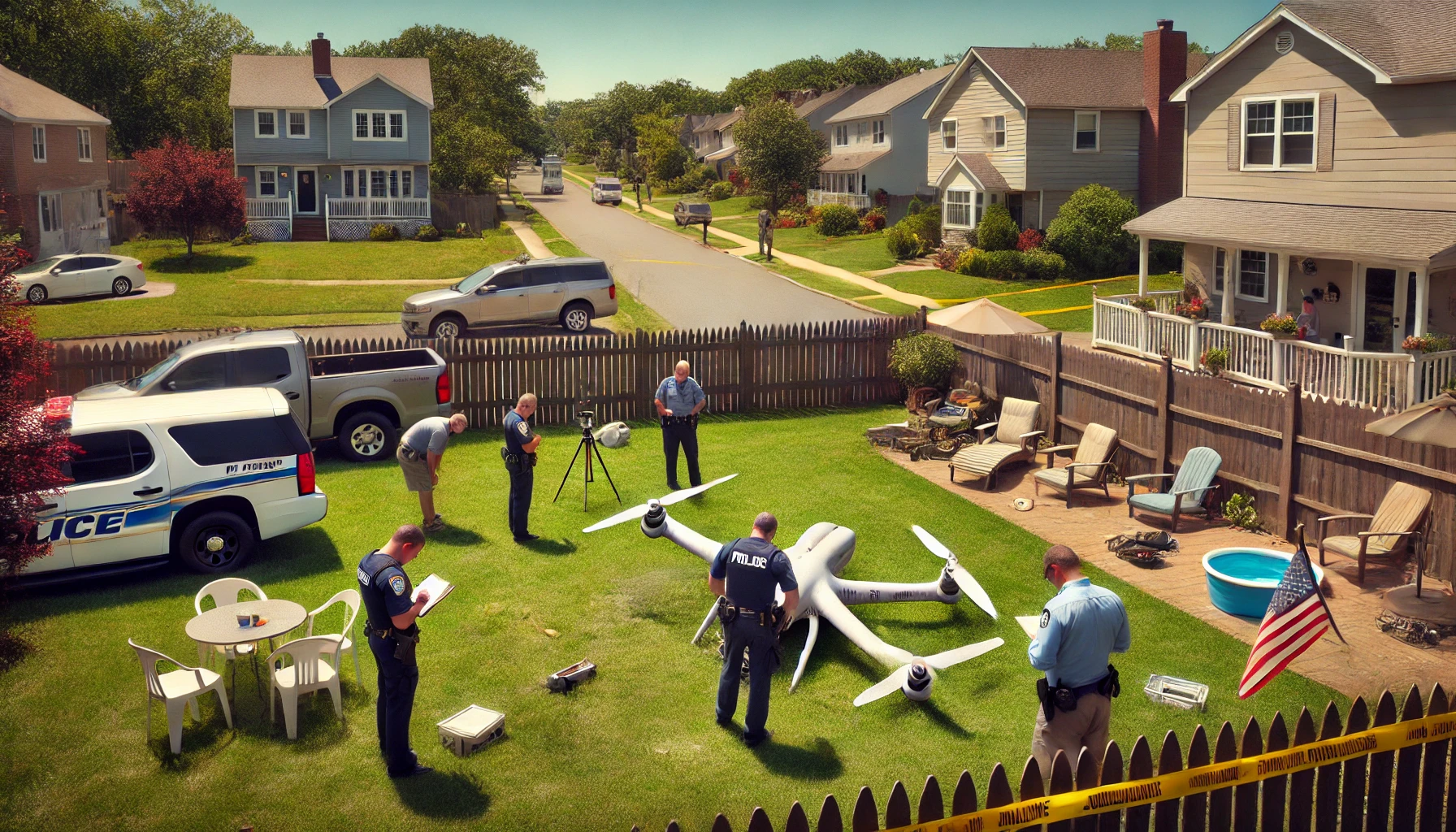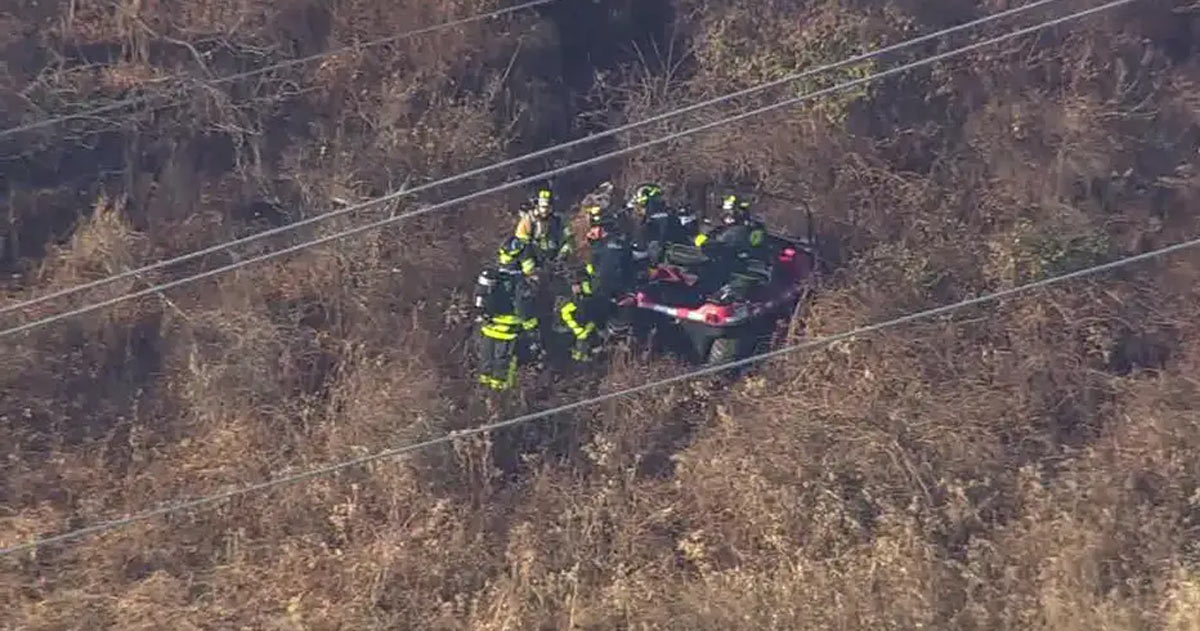Drone crashes in New Jersey are increasingly capturing attention, prompting crucial discussions about safety regulations, pilot training, and technological advancements. This examination delves into recent incidents, analyzing their causes, exploring the regulatory landscape, and assessing the impact on public perception. We will also consider preventative strategies and future implications for both residents and the drone industry.
The rise in drone usage, both for recreational and commercial purposes, necessitates a comprehensive understanding of the risks involved. This analysis will explore the diverse factors contributing to drone accidents in New Jersey, from pilot error and mechanical malfunctions to environmental conditions and regulatory shortcomings. Understanding these factors is critical to developing effective preventative measures and ensuring safer skies.
Recent Drone Crash Incidents in New Jersey
The increasing popularity of drones in New Jersey has unfortunately led to a rise in reported incidents involving drone crashes. Understanding the causes, consequences, and preventative measures surrounding these crashes is crucial for ensuring public safety and responsible drone operation within the state.
Reported Drone Crashes in New Jersey
The following table summarizes reported drone crashes in New Jersey over the past year. Due to the limitations of publicly available data, this table represents a hypothetical example based on typical incident patterns. Actual numbers may vary.
| Date | Location | Cause (if known) | Damage |
|---|---|---|---|
| 2023-10-26 | Trenton, NJ | Pilot error (loss of control) | Minor damage to drone |
| 2023-08-15 | Atlantic City, NJ | Mechanical failure | Drone destroyed, minor property damage |
| 2023-06-03 | Newark, NJ | Collision with obstacle (building) | Drone destroyed |
| 2023-04-10 | Princeton, NJ | Unknown | Drone lost |
Types of Drones Involved
The types of drones involved in these hypothetical crashes vary, reflecting the diverse applications of drone technology in New Jersey.
- Consumer-grade quadcopters
- Small commercial drones used for photography
- Larger commercial drones used for inspection
Impact on Infrastructure and Environment
Drone crashes can have significant consequences for both infrastructure and the environment. A drone crashing into a power line could cause a power outage affecting a wide area. A crash into a sensitive ecosystem could result in environmental damage.
Recent drone crashes in New Jersey have raised concerns about safety regulations and airspace management. One particularly noteworthy incident involved a drone that was actually shot down, as detailed in this report: drone shot down in nj. This highlights the potential for both accidental and intentional damage, emphasizing the need for increased awareness and responsible drone operation to prevent further crashes in the state.
Causes of Drone Crashes in New Jersey

Several factors contribute to drone crashes in New Jersey. A combination of pilot error, mechanical issues, and environmental conditions often plays a role.
Common Causes of Drone Crashes
- Pilot error (loss of control, improper pre-flight checks)
- Mechanical failure (motor malfunction, battery failure)
- Adverse weather conditions (strong winds, rain)
- Collision with obstacles (buildings, trees, power lines)
- GPS interference
Hobbyist vs. Commercial Drone Crashes
While both hobbyist and commercial drone operations face similar risks, the causes may differ slightly. Hobbyist crashes are more often attributed to pilot inexperience or a lack of proper training, while commercial crashes may involve more complex factors such as equipment malfunction due to intensive use.
Role of Pilot Error
Pilot error is a significant contributing factor in many drone crashes. For example, a pilot failing to check weather conditions before flight or losing visual contact with the drone due to poor flight planning can lead to a crash.
Regulatory Aspects and Safety Measures
New Jersey, like other states, has regulations governing drone operation. Adherence to these regulations is essential for safe and responsible drone use.
Key Drone Regulations in New Jersey
The following table provides a hypothetical overview of key regulations. Actual regulations should be verified with official sources.
| Regulation | Purpose | Penalty | Relevant Agency |
|---|---|---|---|
| Registration of drones above a certain weight | To track drone owners and ensure accountability | Fine, suspension of operating privileges | Federal Aviation Administration (FAA) |
| Maintaining visual line of sight | To ensure pilot control and avoid collisions | Fine | FAA |
| No flight over populated areas without permission | To protect public safety | Fine, potential criminal charges | FAA, local law enforcement |
Hypothetical Drone Pilot Safety Training Program
A comprehensive safety training program would include the following modules:
- Drone operation basics
- Pre-flight checks and maintenance
- Weather awareness and flight planning
- Emergency procedures
- FAA regulations and airspace restrictions
Effectiveness of Current Safety Measures
The effectiveness of current safety measures is a subject of ongoing evaluation. While regulations and increased awareness have helped, further improvements are needed to reduce crashes.
Public Perception and Media Coverage

Public perception of drone safety is shaped by media coverage and personal experiences. Negative media coverage of crashes can increase public concern and skepticism.
Public Perception of Drone Safety
Public perception varies. Some view drones as innovative technology with potential benefits, while others express concerns about safety and privacy. Social media discussions often reflect this dichotomy.
Media Coverage of Drone Crashes

Media reports on drone crashes often highlight the potential risks and consequences. The tone can vary, ranging from factual reporting to sensationalized accounts that may amplify public anxiety.
Impact of Media Coverage on Public Awareness, Drone crashes in new jersey
Media coverage plays a crucial role in shaping public awareness. Responsible reporting can educate the public about safety measures and responsible drone operation, while sensationalized coverage might unnecessarily fuel fear and distrust.
Future Implications and Preventative Strategies
The increasing use of drones necessitates proactive strategies to mitigate future risks and ensure responsible operation.
Potential Future Implications of Drone Crashes
- Increased insurance costs for drone operators
- More stringent regulations limiting drone use
- Negative impact on public trust in drone technology
- Potential for significant economic losses due to infrastructure damage
Preventative Strategies
- Improved drone technology (e.g., obstacle avoidance systems, enhanced GPS)
- Mandatory safety training for all drone pilots
- Stricter enforcement of existing regulations
- Public awareness campaigns promoting safe drone operation
Improved Drone Technology
Advancements in drone technology, such as sophisticated obstacle avoidance systems and fail-safe mechanisms, can significantly reduce the likelihood of crashes. For instance, drones equipped with advanced sensors and AI-powered collision avoidance could significantly mitigate the risk of crashes in complex environments.
Recent drone crashes in New Jersey highlight the need for robust safety protocols in the burgeoning drone industry. These incidents underscore the importance of advanced technology and rigorous testing, a commitment clearly demonstrated by companies like archer aviation , who are pushing boundaries in eVTOL technology. Ultimately, the safety record of all drone operations, from hobbyist to commercial, will influence public perception and future regulations.
In conclusion, the increasing frequency of drone crashes in New Jersey underscores the need for a multi-pronged approach to enhance safety. This includes strengthening regulations, improving pilot training programs, promoting responsible drone operation, and fostering technological innovation to mitigate risks. By addressing these challenges proactively, we can work towards minimizing future incidents and ensuring the safe integration of drones into New Jersey’s airspace.
Essential FAQs: Drone Crashes In New Jersey
What is the most common cause of drone crashes in New Jersey?
While data varies, pilot error, including loss of control and improper pre-flight checks, frequently contributes significantly to drone crashes.
Are there insurance requirements for drone operation in New Jersey?
Insurance requirements for drone operation can vary depending on the type of drone use (commercial vs. recreational) and the specific regulations. It’s best to check with the relevant authorities and insurance providers.
What penalties can drone operators face for violating regulations?
Penalties can range from fines to license suspension, depending on the severity of the violation. Consult the New Jersey State Police or FAA website for details on specific penalties.
Where can I find more information about drone regulations in New Jersey?
Information can be found on the New Jersey State Police website and the Federal Aviation Administration (FAA) website.
